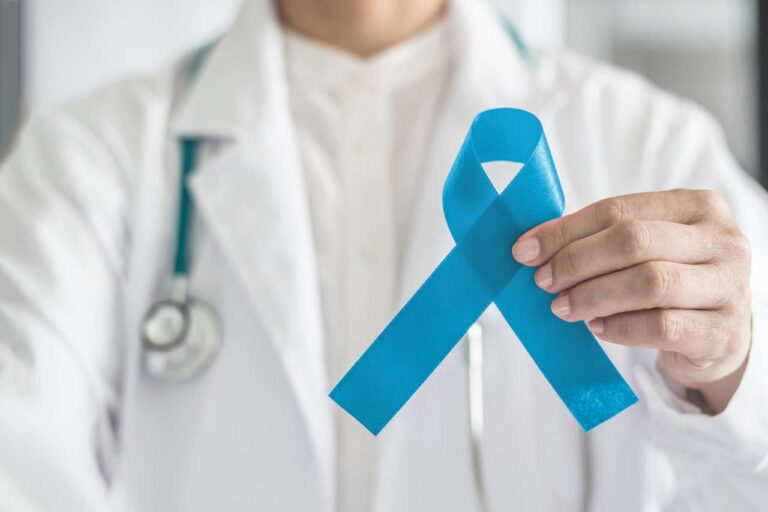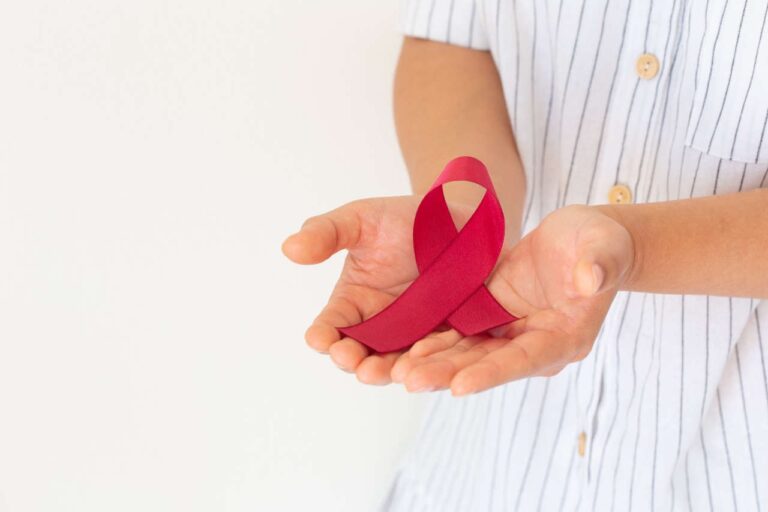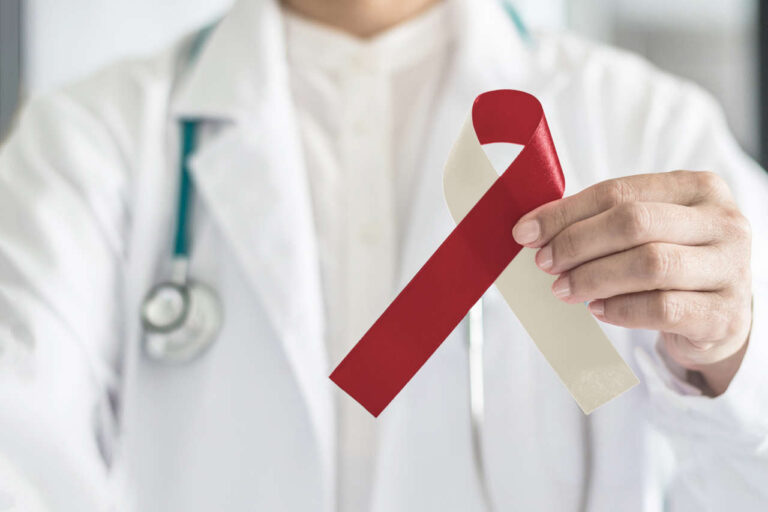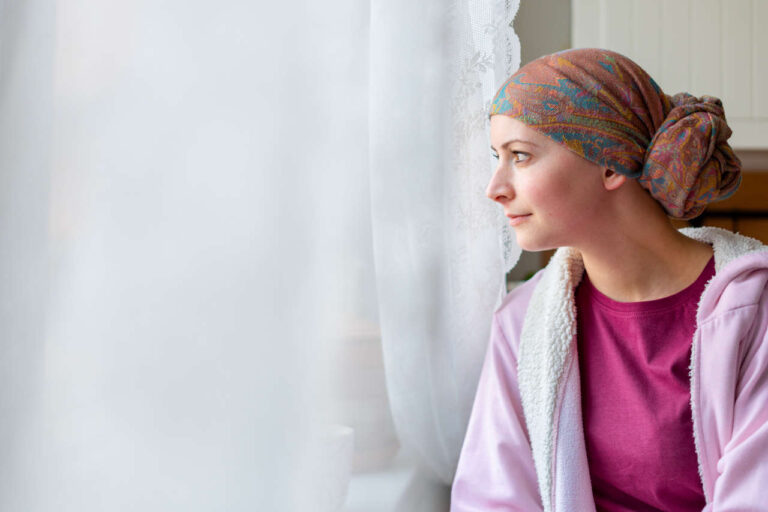
Gazyva is a prescription drug that contains the active ingredient obinutuzumab and is used to treat follicular lymphoma and chronic lymphocytic leukemia. This cancer immunotherapy medicine is typically used in conjunction with other anticancer medications. It was authorized by the FDA on November 16, 2017 [1].
Speak to a Specialist
About Copay AssistanceGazyva is thought to work by activating the immune system, enabling it to target lymphoma cells. It is administered by a healthcare provider as an infusion through the vein. It is a recommended treatment option for certain individuals, although it has some severe side effects, which can be serious.
What Is Gazyva Used To Treat?
Gazyva is mainly prescribed for treating two types of cancer [2]:
- Chronic Lymphocytic Leukemia (CLL): Gazyva, in combination with chlorambucil, is approved for the treatment of previously untreated chronic lymphocytic leukemia.
- Follicular Lymphoma: Gazyva is approved for the treatment of previously untreated follicular lymphoma in combination with chemotherapy.
How Does Gazyva Work?
Gazyva is a monoclonal antibody that binds to the CD20 protein on B cells, which are one type of white blood cell. B cells promote the production of antibodies, which are part of your immune system. Cancer cells typically have higher levels of CD20 proteins than healthy cells.
Gazyva triggers an immune response when it binds to CD20. The drug-attached cells are attacked by and killed by signals that are sent out. Cancer cell death can also be commanded by Gazyva.
Side Effects

Gazyva may have mild to severe side effects.
Mild Side Effects
Mild side effects include the following:
- Upper respiratory infections
- Muscle aches
- Fatigue
- Rash
- Headache
- Cough
- Diarrhea or constipation
In most cases, these adverse effects are temporary and manageable. However, consult your doctor or pharmacist if you are experiencing any ongoing problems.
Serious Side Effects
Serious side effects include the following:
- Infusion-related reactions
- Decreased white blood cell count
- Severe infections, such as pneumonia
- Reactivation of hepatitis B
- Allergic reaction
- Tumor lysis syndrome
- Decreased platelet count
If you have these severe adverse effects, immediately contact your doctor.
Consult a Specialist
Get Treatment AssistancePrecautions
Make sure Gazyva is safe for you before using it. Inform your doctor if you’ve ever had:
- High blood pressure
- Hepatitis B or other liver disorders
- Kidney problems
- Low potassium levels in the blood
- An active infection
Dosing of Gazyva
For the treatment of chronic lymphocytic leukemia
Gazyva is given in a series of six cycles, each lasting 28 days.
- The first infusion will consist of 100 mg of Gazyva administered by IV over 4 hours.
- If you tolerate the first infusion well, a second infusion of 900 mg would be given through IV infusion the same day or the next day.
- If the previous infusion was successful, you would receive 1,000 mg by IV for the subsequent infusions.
For the treatment of Follicular Lymphoma (FL)
- The first infusion consist of 1,000 mg given by IV infusion
- If the first infusion goes well, for subsequent infusions, you would receive 1,000 mg via IV infusion.
Your doctor may decide to continue treating you with Gazyva if the first course of treatment is successful. For up to 2 years, you are permitted to take Gazyva once every 2 months.
What Other Drugs Will Affect Gazyva?
Tell your doctor if you take the following medications:
- A blood thinner: Warfarin, coumadin, or jantoven.
- A blood clot medication or prevention medication: Dipyridamole, ticagrelor, cilostazol, clopidogrel, ticlopidine, and others.
This is not a comprehensive list. There may be interactions between Gazyva and other medications, including vitamins and herbal supplements. Consult with your doctor or pharmacist before starting the medication.
Cost of Gazyva
Gazyva intravenous solution at 25 mg/ml costs around $8,197 for a supply of 40 ml. However, the real cost will depend on your insurance plan and location. Like all drugs, the price of this medication can vary. Financial assistance is available to certain patients. Contact us to find out if you qualify.
Self-Care Tips
- Report any pain, burning, or swelling at the infusion site; chest discomfort or palpitations; trouble breathing or swallowing; or chills immediately.
- Consume two to three quarts of fluid over the first 48 hours following each infusion.
- This treatment sometimes causes nausea. If you feel nauseous, use anti-nausea medications as prescribed by your doctor.
- You may feel drowsiness or dizziness. As a result, avoid driving or other activities that require alertness until your reaction to the medicine is known.
- Avoid consuming alcoholic beverages.
- Maintain a healthy diet, and share any symptoms or side effects with your healthcare professional.
Get Copay Assistance
Financial AssistanceFAQs
Is it possible that Gazyva can cause long-term adverse effects?
Yes, it is possible. Some of the serious adverse effects can be long-lasting. For example, it may take many months after stopping treatment for low white blood cell counts to return to normal. And, even when treated with antibiotics or antivirals, some infections might remain for a long period.
What should I avoid when using Gazyva?
While using Gazyva, do not get a live vaccine. Live vaccinations include measles, mumps, rubella (MMR), polio, rotavirus, typhoid, yellow fever, varicella (chickenpox), and zoster.
What happens if I overdose?
Call 911 if you overdose and experience serious symptoms like fainting or difficulty breathing. For less serious symptoms, call a poison control center right away.
What if I forget to take a dose?
It is important to take this medicine exactly as prescribed by your doctor. If you miss a dose, consult your doctor or pharmacist to set up a new dosing schedule.
Is Gazyva a chemotherapy drug?
No. It is not a kind of chemotherapy. Gazyva is part of a class of drugs known as monoclonal antibodies, which is a type of targeted treatment. Targeted therapies function by working on a specific area of your body.
How long will Gazyva stay in your system?
Gazyva remains in your body for around 25 to 31 days, and you will usually receive it once every 21 to 28 days. If the doses are spaced out, you will have the correct amount of medicine in your body.
Will I need to take anti-infective medicine while using Gazyva?
Typically, you will not need to take anti-infective medication while receiving Gazyva. Your blood levels will be monitored by your doctor during your treatment. Your white blood cell count may drop too low and remain low for more than a week. If this occurs, your doctor may prescribe medication to protect you from viral or fungal infections.
REFERENCES:
- Center for Drug Evaluation and Research. (2017, November 16). FDA approves obinutuzumab for previously untreated follicular lymphoma. U.S. Food And Drug Administration. https://www.fda.gov/drugs/resources-information-approved-drugs/fda-approves-obinutuzumab-previously-untreated-follicular-lymphoma
- Klein, C., Bacac, M., Umaña, P., & Wenger, M. (2014). Obinutuzumab (Gazyva®), a Novel Glycoengineered Type II CD20 Antibody for the Treatment of Chronic Lymphocytic Leukemia and Non-Hodgkin’s Lymphoma. Handbook of Therapeutic Antibodies, 1695–1732. https://doi.org/10.1002/9783527682423.ch62
- GAZYVA® (obinutuzumab) Treatment, Indications, Dosing & Safety. (n.d.). Gazyva. https://www.gazyva.com/













